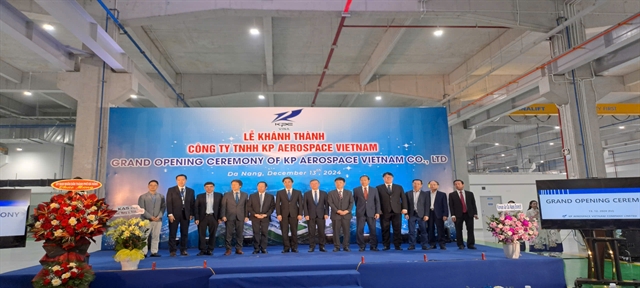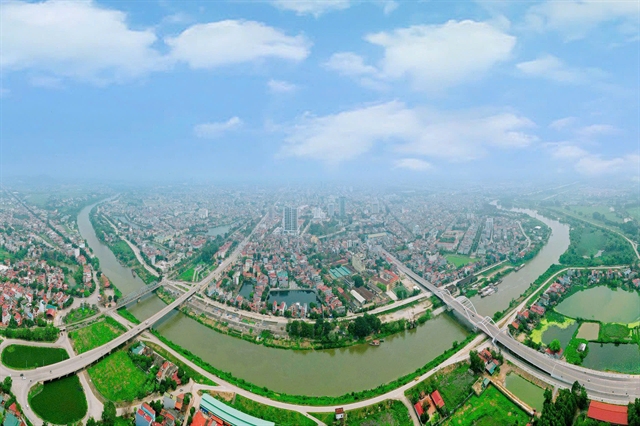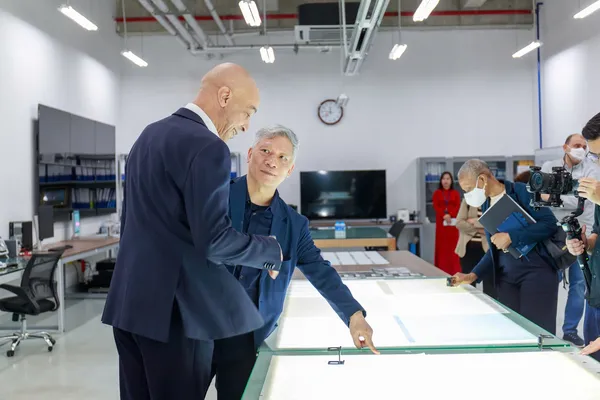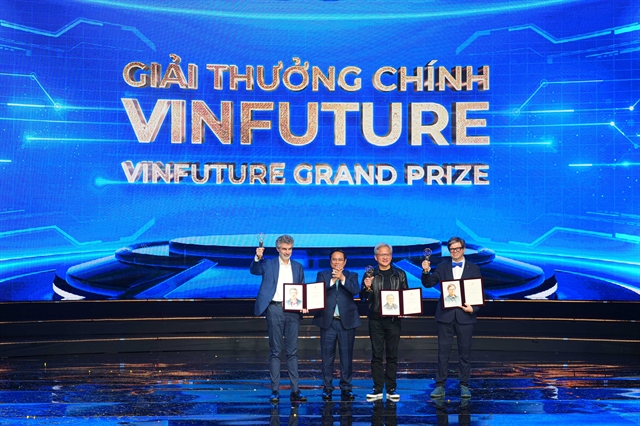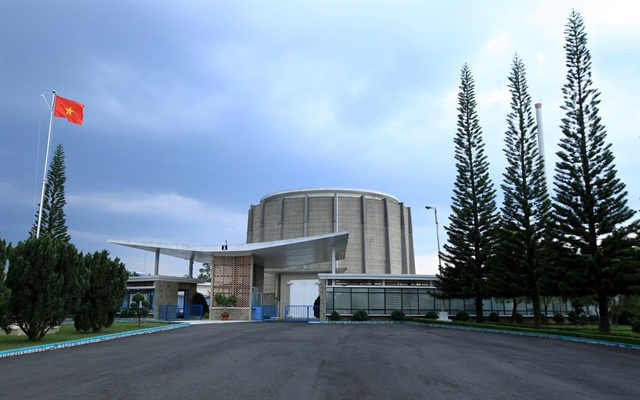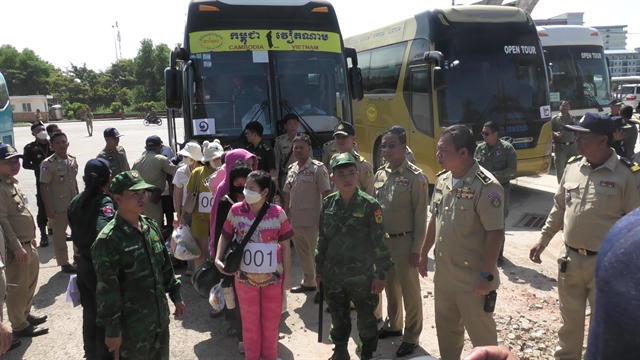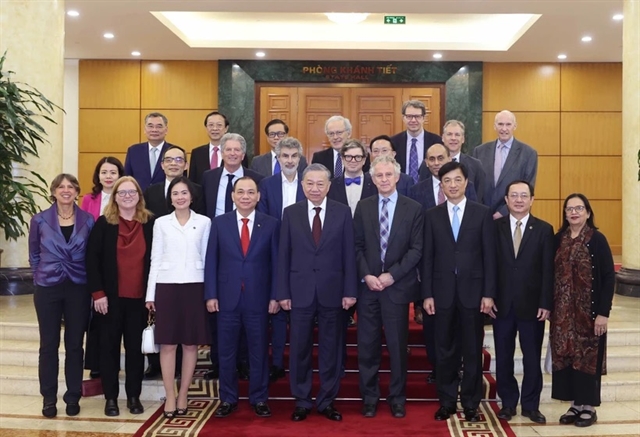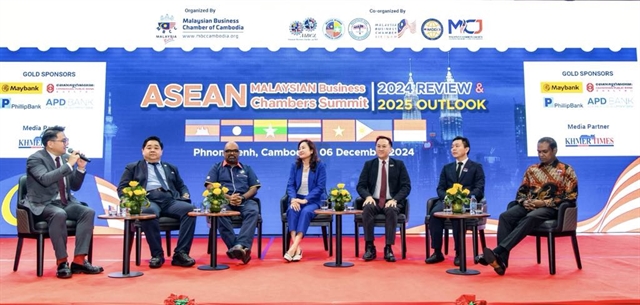

A man called Nguyễn Tấn Phát from Vũng Tàu City has made it his duty to clean up the beaches.
" />Plastic litter has become a huge threat to life in the ocean.
A man called Nguyễn Tấn Phát from Vũng Tàu City has made it his duty to clean up the beaches.
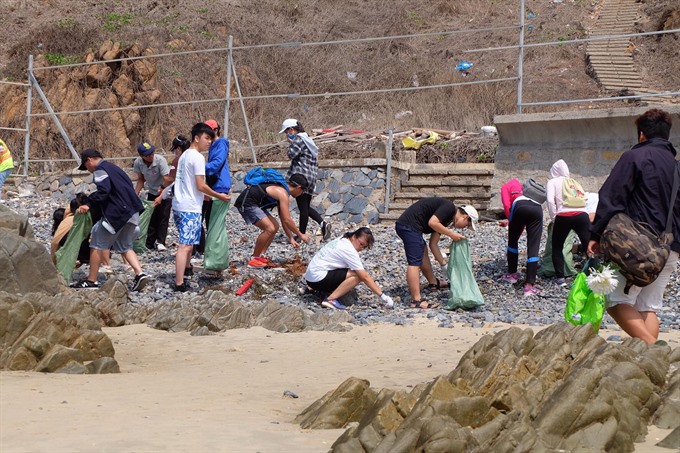 |
| Young people are running and picking up rubbish in Vũng Tàu City. — Photo courtesy of project Chạy Nhặt |
Plastic litter has become a huge threat to life in the ocean.
A man called Nguyễn Tấn Phát from Vũng Tàu City has made it his duty to clean up the beaches.
He does not remember seeing such litter when he was young.
Nguyễn Tấn Phát is very worried about fish eating plastic and then people eating those fish.
Khánh Dương
VŨNG TÀU — Locals and tourists of southern Vũng Tàu City are used to seeing a young man run along the beach every early morning.
Nguyễn Tấn Phát is a man on a mission. He’s not there to enjoy the view, he’s there to collect rubbish others have discarded.
Born and bred in the coastal city, Phát has always had a strong bond with the ocean. But year on year he can’t help but notice the increase in the amount of plastics washing up on the shore.
“When I was a child going to the beach seeing locals catch fish, I never saw rubbish stuck in the fishing nets,” the 29-year-old said. “But now it is easy to notice rubbish tangled with fish.
“Fish eat plastic. Then what will happen if people consume fish?
“At some point, I feel very frustrated by the overwhelming amount of trash and this makes me ask many questions and somehow lose faith in humanity.
“However, I came to realise that instead of wasting my energy on negative thoughts, I should move on and inspire more like-minded people to take action and make a change.
“Litter is a big problem in Việt Nam. Everyone knows how harmful it is but they still do it and refuse to pick up trash they see because they think the trash is dirty and not littered by them.”
Three months ago, Phát started to post information about his project titled Chạy Nhặt, which literally means running and picking up trash along the beach in Vietnam, on a Facebook page to call for help from more people. But he does not want to set up events. Anyone who is interested can text Phát then he will organise time to run and pick up plastic waste with them.
More and more friends of Phát in Vũng Tàu City and from HCM City have been told of the plan and joined him. At first, a small group of four to five people was set up.
Gradually more local people and tourists learned about the activity and joined in. The largest pickup group so far consisted of around 30 volunteers. People of all ages and from all walks of life help Phát, especially tourists because he thinks tourists are considered to be a major contributor to the problem in the first place.
The running route they take is familiar beaches of the tourism city, from Bãi Trước, Bãi Sau to Mũi Nghinh Phong.
The litter they pick is mostly plastic waste including foam food containers, bags, spoons, dishes, straws and bottle caps.
“It is very difficult to classify it because it is very wet and dirty,” Phát said, adding that he is looking forward to working with local authorities to find ways how to treat plastic litter after the pickup.
The idea does not end up with people just picking up trash. “I want them to take action through listening,” he said.
Phát, who has just finished one of his master’s degrees in Peace Education at the United Nations mandated University for Peace in Costa Rica, wants to combine trash pickup with education by telling participants stories about how negative plastic impacts on environment in the world, inspiring them to be more responsible. He has also hosted multiple discussions with more than 250 elementary and high school students on the topic.
“People know litter is harmful but are not acutely aware of how harmful it is,” he added.
“When plastic trash leaks to the ocean, it poses dangers to marine life, including the fish which mistakes the debris as their food. Consequently, they eat the trash which results in choking or suffocating to death.
“When the fish eat plastic, fish will die, as a consequence, fishermen will suffer from losses as their livelihoods are affected. If people consume fish containing plastics, their health is exacerbated too.
“I want to make them aware of these impacts. From changing awareness, they will take action,” Phát said.
First step that counts
Since starting the project, the young man with the unconditional love for environment faced criticism with some saying he was wasting his time and energy because this cannot help solve the root cause of the problem.
He said: “I was disappointed at that time. I cannot clean up all the trash in my town but at least I dare to take action and clean up locations where I stand.
“At first, seeing me pick up trash on the beach, many people did not care about my action. One day when I was routinely cleaning up the trash on Âu beach, an old local who swims there every day and two other fishermen helped me to pick up trash. Since then, each time they see me pick up the trash, they always lend me a hand. Thanks to the trash, I can make new friends regardless of the age," he said.
“Another girl in Cửu Long (Mekong) Delta province of Vĩnh Long, after hearing about my project, called on her family to pick up trash in the park near their house.
“These are just small actions but I feel motivated. Instead of wasting time thinking about criticism, I believe that only actions can help address problems,” he said.
After three months, the project has so far received more than 120 Vietnamese and overseas helps, both local people and tourists who run a total of 500km and collect more than 250 kilograms of plastic trash.
One helper who joined in said although it is an uphill battle, it is a very important fight.
“Ridding the beaches of trash is a daunting task, but it’s a crucial piece in the greater effort to change our view of the environment, and our relationship to nature," said Courtney Banker from the US.
“Fisherman, beach-goers, onlookers may find our actions peculiar and even ludicrous at first, but I am confident that eventually, they not only will understand, but also will change their ways.”
The young man also plans to conduct further educational programmes on environmental issues, for example, motivating people to use tote bags instead of plastic bags when they go shopping, publishing colouring books for children and encouraging local restaurant owners to use paper boxes and bags.
“The ocean has generously given to us countless things, such as the air we breathe, the fish that we eat, even the breeze that we enjoy. As a new generation, we should do something new to give back to mother ocean. Time to take action, even a very small thing,” Phát said. — VNS
GLOSSARY
Nguyễn Tấn Phát is a man on a mission.
A mission is a job with a purpose that you may desperately want to do.
Born and bred in the coastal city, Phát has always had a strong bond with the ocean. But year on year he can’t help but notice the increase in the amount of plastics
Bred means brought up.
A bond is an imaginary ribbon that ties together people who like one another.
“But now it is easy to notice rubbish tangled with fish.
Tangled means caught up.
“Then what will happen if people consume fish?
Consume means use but, in this case, it also means eat.
“At some point, I feel very frustrated by the overwhelming amount of trash and this makes me ask many questions and somehow lose faith in humanity.”
To feel frustrated means to feel helpless and cross.
If something is overwhelming it is uncontrollable.
Faith means belief.
Humanity means people and the way in which they behave.
“However, I came to realise that instead of wasting my energy on negative thoughts, I should move on and inspire more like-minded people to take action and make a change.
If people are inspired they get the energy to want to go and do something positive.
“Everyone knows how harmful it is but they still do it and refuse to pick up trash they see because they think the trash is dirty and not littered by them.”
To refuse to do something means to declare that you will not do it.
Three months ago, Phát started to post information about his project titled Chạy Nhặt, which literally means running and picking up trash along the beach in Vietnamese, on a Facebook page to call for help from more people.
To literally run and pick up trash along the beach means to do exactly what those words mean.
The largest pickup group so far consisted of around 30 volunteers.
Volunteers are people who are willing to do a job or perform a duty without asking for payment.
The running route they take is familiar beaches of the tourism city, from Bãi Trước, Bãi Sau to Mũi Nghinh Phong.
If something is familiar you know it and it is not strange to you.
“It is very difficult to classify it because it is very wet and dirty,” Phát said, adding that he is looking forward to working with local authorities to find ways how to treat plastic litter after the pickup.
To classify something means to declare that belongs to a group of things that are similar.
Phát, who has just finished one of his master’s degrees in Peace Education at the United Nations mandated University for Peace in Costa Rica, wants to combine trash pickup with education by telling participants stories about how negative plastic impacts on environment in the world, inspiring them to be more responsible.
A master’s degree is an advanced university degree that is obtained after a bachelor’s degree.
Consequently, they eat the trash which results in choking or suffocating to death.
Suffocating means dying by not being able to breathe.
“If people consume fish containing plastics, their health is exacerbated too.”
Exacerbated means making a problem even worse.
Since starting the project, the young man with the unconditional love for environment faced criticism with some saying he was wasting his time and energy because this cannot help solve the root cause of the problem.
Unconditional means “no matter what”.
Criticism is what may be said to you if someone is telling you what you are doing wrong.
The root cause of a problem is the deep-down cause of a problem.
“Since then, each time they see me pick up the trash, they always lend me a hand. Thanks to the trash, I can make new friends regardless of the age," he said.
To lend a hand means to help.
“These are just small actions but I feel motivated.”
To feel motivated means to feel a drive inside you to makes you want to do something.
“Ridding the beaches of trash is a daunting task, but it’s a crucial piece in the greater effort to change our view of the environment, and our relationship to nature," said Courtney Banker from the US.
Daunting means scary.
Crucial means very important.
“Fisherman, beach-goers, onlookers may find our actions peculiar and even ludicrous at first, but I am confident that eventually, they not only will understand, but also will change their ways.”
Peculiar means strange.
Ludicrous means ridiculous.
“The ocean has generously given to us countless things, such as the air we breathe, the fish that we eat, even the breeze that we enjoy.
Generously means in a way that is unselfish and willing to share.
WORKSHEET
State whether the following sentences are true, or false:
© Duncan Guy/Learn the News/ Viet Nam News 2018
1. False; 2. False; 3. True; 4. True; 5. True.

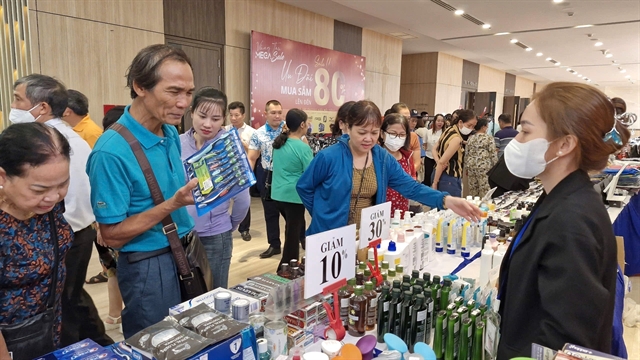
.jpg)
